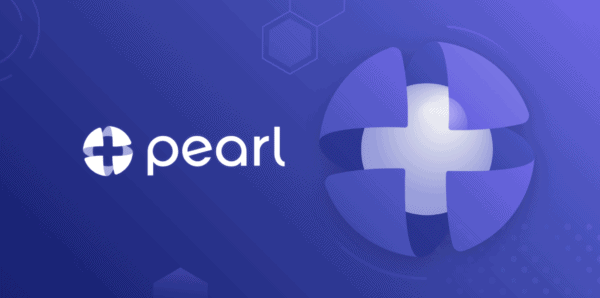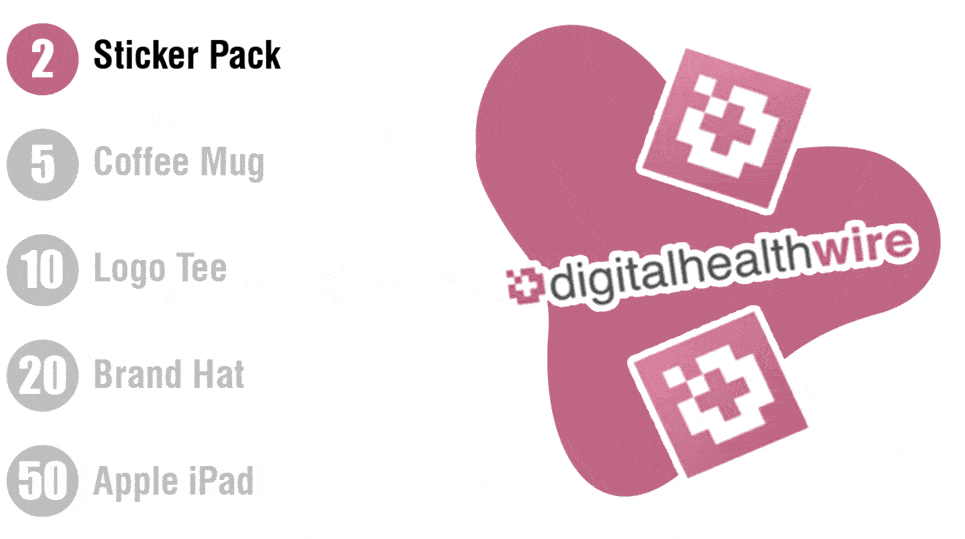|
Pearl Series B | DiMe V1C Directory
January 30, 2023
|
|
|

|
|
Together with
|

|
|
|
“New technology developed to support physician practices will enable a swing back to independence. These scenarios create the perfect storm for enablement platforms to capitalize on – alleviate existing administrative burden stemming from billing, documentation, prior auth, etc. but allow the physician to… do physician things.”
|
|
Hospitalogy Author and Physician Enablement Soothsayer Blake Madden
|
|

|
|
It looks like it’s already shaping up to be a big year for physician enablement companies, with Pearl Health raising $75M in Series B funding to help stake its claim in the independent practice land grab.
The Pearl Platform assists primary care providers participating in Medicare’s ACO REACH model with identifying patients who are driving expenses, then incentivizes them to deliver high-value care.
- The platform distills data from health plans, hospitals, and pharmacies into turnkey reports that help PCPs prioritize their sickest patients and rein in expenses.
- It also equips them with admit, discharge, and transfer alerts so they have the information they need to effectively coordinate care following acute events.
- Pearl’s seen some stellar growth since going live in 2022, growing its platform to over 800 physicians delivering care to upwards of 43k Medicare patients across 29 states.
Unlike many competing platforms, Pearl doesn’t require an EHR integration. After a practice is onboarded, using the Pearl Platform can be as simple as signing on to the website, which more-than-likely played a major role in its rapid adoption.
- Pearl views its platform agnostic approach as its key differentiator from other VBC enablers like Privia and Agilon that have longer onboarding time due to EHR integration requirements.
- The fresh funding is earmarked to help Pearl bring more practices onto its platform as quickly as possible, which should help it invite more payors to its model, and in turn allow it to offer more risk-based contracts to its providers.
The Takeaway
The sun is definitely shining on physician enablement platforms, with an aging population and increased utilization acting as powerful tailwinds for companies that can steer providers toward high-value care. That said, there are only so many available physicians and a growing line of startups knocking on their door to help them with the VBC transition, but Pearl’s recent growth seems to suggest that doctors like the sound of its platform agnostic knock.
|




|
|
Creating an Exceptional Engagement Experience
With a surge in experience‑oriented disruptors entering the healthcare industry, patient engagement is becoming a crucial competitive differentiator. Get your copy of Nuance’s guide to delivering intelligent interactions and a better experience at every touchpoint.
|
|
unResign From Nursing with connectRN
connectRN’s new campaign unResignation Notice is helping nurses recommit to the profession they love by highlighting both the challenges they face and the reasons why they want to return. “It’s not in a nurse’s nature to quit. Something needs to change, and it’s not the nurses.” Learn more and sign your own unResignation Letter here.
|
|
- DiMe V1C Directory: DiMe just released the first fully searchable Virtual First Care (V1C) directory, currently featuring 139 organizations that are committed to a V1C approach to healthcare. It’s easily filterable by population / provider type / market focus, and a really cool tool for anyone doing any sort of market analysis or benchmarking.
- Rx Redefined Raises $8M: Rx Redefined raised an $8M Series A round (total funding now $14M) to enable providers to directly manage the distribution of medical supplies to their patients. Rx Redefined lets physicians order supplies on behalf of patients by helping them become licensed medical suppliers, cutting out supplier middlemen in favor of a per-order charge that covers the software, licensing, and supply chain services.
- AI’s Cost Impact: McKinsey and Harvard researchers published a new report highlighting how wider adoption of AI could reduce US healthcare costs by $200B to $360B per year. The authors estimated the cost reductions based on AI applications that are achievable within the next five years (administrative tasks, optimizing clinical operations), but warned that they’ll only be achievable if several barriers are addressed (lack of trust among patients and doctors, heterogeneous data, misaligned incentives).
- 1health + Inspire Diagnostics: Clinical testing platform company 1health.io is partnering with Inspire Diagnostics to bring health and wellness tests (inflammation, sleep, stress, thyroid, heart health) directly to consumers. 1health is providing the complete end-to-end platform for the new Inspire Wellness@Home testing product, allowing Inspire Diagnostics to streamline ordering and focus on customer service without having to build the infrastructure from the ground up.
- Telehealth vs. In-Person Costs: The Kaiser Family Foundation found that private payors spent roughly the same amount for telehealth and in-person services during the early days of the pandemic, challenging the argument that telehealth is reducing costs for the healthcare system. KFF researchers noted that major telehealth advantages include expanded access and convenience, but pointed out the cost benefits of those factors weren’t included in the study.
- knownwell Seed Round: knownwell made its debut with $4.5M in seed funding as it looks to become a leader in weight-inclusive care. The hybrid care startup is taking a holistic approach to obesity management, combining primary care with metabolic health services, nutritional counseling, and psychotherapy.
- Fall TIPS Program: New research in JAMA estimated that the Fall TIPS program could generate annual cost reductions of $1.8B if implemented nationally, with intervention costs of just $20M. After analyzing data from eight hospitals who implemented the three-step Fall TIPS program (fall risk assessment, fall prevention planning, tailored interventions) from 2013 to 2019, the authors found a significant decrease in falls and fall-related injuries (2.5k to 2.1k falls; 900 to 758 injuries), resulting in cost reductions of $14.6K per thousand patient days.
- Mercy Virtual Care: Mercy is now several years into its Virtual Care Center roll out, with the RPM program standing at 4,474 active participants and a 207 patient wait list. Mercy’s executive director of vEngagement, Annie Bannister, recently shared a trio of recommendations for any system looking to find success with a similar program: reduce as many barriers as possible for patients to join, work to earn patients’ and community partners’ trust for improved adoption, and support PCP involvement with program referrals.
- Mighty Secures $7.6M: Senior-focused exercise startup Mighty Health scored a $7.6M seed round to expand its strategic partnerships list of partners and launch new chronic disease programs. Mighty Health works with commercial health plans including Medicare Advantage to offer adults over the age of 50 access to exercise programs tailored to their needs, including low-impact workouts, personalized nutrition plans, and text-based health coaching.
- HHS Health Coverage Boost: HHS data showed that the percentage of Americans without health coverage decreased to 10.5% in 2021 (down from 11.1% in 2019), due in part to changes in federal and state coverage policies for Medicaid and the Marketplace. The largest improvements were seen among young adults (percentage without coverage dropped to 15% from 16%), Latinos (down to 19.1% from 20.2%), American Indian/Alaska Natives (down to 21.5% from 22.4%), and non-English speakers (down to 27.3% from 28.8%).
|
|
Hyperfine Brings MRI to the ICU
“It completely changes the way we think about MRI imaging.” Take a look at this video interview with Mass General’s Chief of Neurocritical Care to see how clinicians can use Hyperfine’s Swoop Portable MRI to eliminate care disruptions in the ICU by keeping critically ill patients in the unit throughout the neuroimaging process.
|
|
3 Ways to Ease the Pain of Provider Credentialing
Is provider credentialing adding cost and time to your bottom line? Check out Medallion’s new blog for three ways to ease the pain of provider credentialing so that you can focus on delivering quality care.
|
|
Ultimate Guide to Selecting Your Drug Database
Do your providers need easy access to real-time drug knowledge and clinical decision support? Join Synapse Medicine CEO Clement Goehrs, MD, MSc on February 22nd to discover the essential factors to consider when selecting a drug database for your health tech product.
|
|
|
Share Digital Health Wire
|
|
Spread the news & help us grow ⚡
|
|
Refer colleagues with your unique link and earn rewards.
|

|
|
|
|
Or copy and share your custom referral link: *|SHAREURL|*
|
|
You currently have *|REFERRALS|* referrals.
|
|
|
|
|